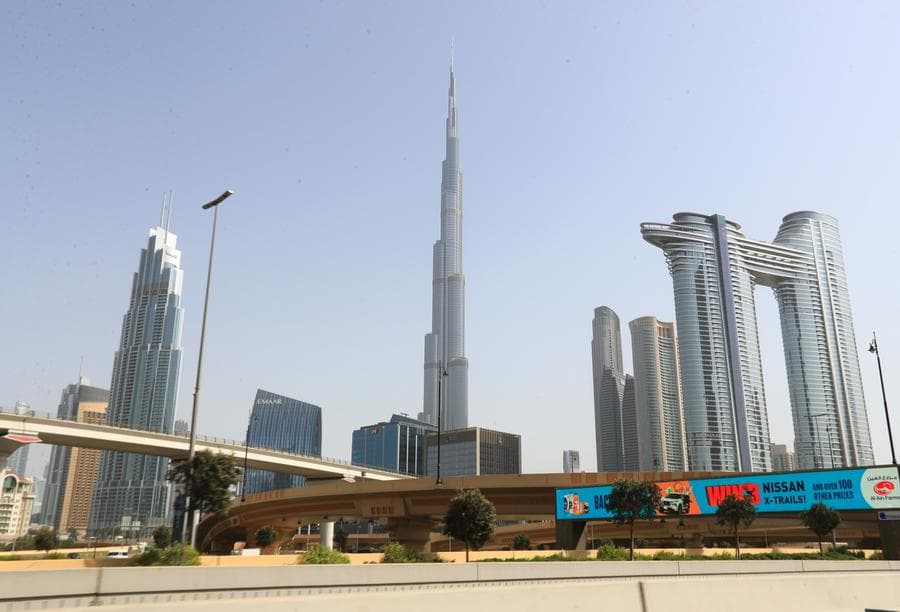We're loading the full news article for you. This includes the article content, images, author information, and related articles.
The Gulf emirate's historic three-year spending plan on infrastructure and social development signals significant opportunities and competitive challenges for Kenyan trade, investment, and its diaspora workforce.

NAIROBI – The government of Dubai on Sunday, November 23, 2025, approved its largest budget in history, a three-year financial plan for 2026-2028 with total expenditures of AED 302.7 billion (approximately $82.4 billion or KSh 10.7 trillion). The move, aimed at cementing the emirate's status as a global economic hub, carries significant implications for Kenya, a key economic partner in East Africa.
The budget, announced by the Dubai Media Office, projects revenues of AED 329.2 billion ($89.6 billion) over the same period, signalling a robust operating surplus. The spending plan is a core component of the Dubai Economic Agenda (D33), which aims to double the emirate's GDP by 2033.
For the fiscal year 2026 alone, Dubai has allocated 48% of its expenditure to infrastructure and construction projects. A further 28% is designated for social development, including health and education, 18% for security and justice, and 6% for government development. This massive capital injection into its economy is expected to create ripple effects that will be felt across Kenya's trade, investment, and labour sectors.
The United Arab Emirates is a critical trading partner for Kenya. In the first four months of 2025, Kenyan exports to the UAE grew by 37.52% to nearly KSh 22.9 billion, according to the Kenya National Bureau of Statistics (KNBS). This growth occurred even before the full implementation of the Comprehensive Economic Partnership Agreement (CEPA) signed in January 2025, which is designed to liberalise markets between the two nations.
Data from 2023 shows the UAE was Kenya's second-largest source of imports, primarily refined petroleum, valued at $2.38 billion. In turn, Kenya's main exports to the UAE included gold ($356M), sheep and goat meat ($84.5M), and tea ($71.2M). Dubai's focus on massive infrastructure spending could further boost demand for Kenyan construction materials and agricultural produce. However, it also signals increased competition as Dubai strengthens its logistics and transshipment capabilities, which could challenge Mombasa's position as a regional hub.
Foreign Direct Investment (FDI) is another crucial channel of impact. As of December 2024, the UAE was Kenya's sixth-largest source of FDI, with investments totalling $121 million (KSh 15.6 billion). Recent interest from UAE firms in Kenya's port infrastructure, renewable energy, and technology sectors highlights the growing financial ties. Dubai's new budget, by stimulating its own corporate growth, could free up more capital for such overseas investments, potentially benefiting Kenya's development agenda.
An estimated 30,000 Kenyans currently live and work in the UAE, contributing significantly to the Kenyan economy through remittances. These remittances are a top source of foreign exchange for Kenya, with total inflows from the global diaspora reaching a record KSh 666.7 billion in 2024, according to the Central Bank of Kenya. While the United States remains the largest single source of remittances, the Gulf region is a vital contributor.
Dubai's budget, with its heavy investment in social sectors and economic development, is likely to sustain and potentially expand the job market in fields where Kenyans have a strong presence, such as hospitality, aviation, construction, and security. However, challenges remain. In June 2025, it was reported that Kenya had missed out on 5,000 allocated jobs in the UAE due to delays in processing documentation, highlighting the need for streamlined labour mobility frameworks to capitalize on such opportunities.
To put Dubai's financial plan into perspective, its projected expenditure for the single year of 2026 (AED 99.5 billion or approx. KSh 3.5 trillion) is a significant portion of Kenya's entire national budget for the 2025/2026 fiscal year, which is estimated at KSh 4.3 trillion. This comparison underscores the immense financial resources driving Dubai's development and its capacity to influence regional economies.
As Dubai implements this historic budget, Kenyan policymakers, businesses, and job seekers will need to strategically position themselves to leverage the opportunities in trade and investment while navigating the competitive pressures that will inevitably arise from the Gulf nation's accelerated growth.
Keep the conversation in one place—threads here stay linked to the story and in the forums.
Sign in to start a discussion
Start a conversation about this story and keep it linked here.
Other hot threads
E-sports and Gaming Community in Kenya
Active 9 months ago
The Role of Technology in Modern Agriculture (AgriTech)
Active 9 months ago
Popular Recreational Activities Across Counties
Active 9 months ago
Investing in Youth Sports Development Programs
Active 9 months ago